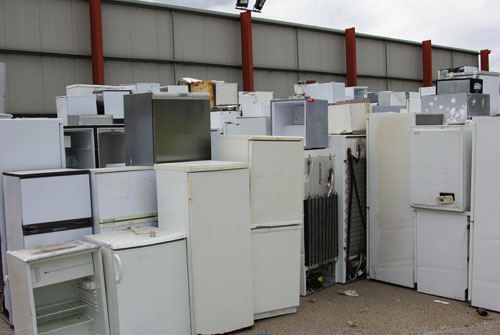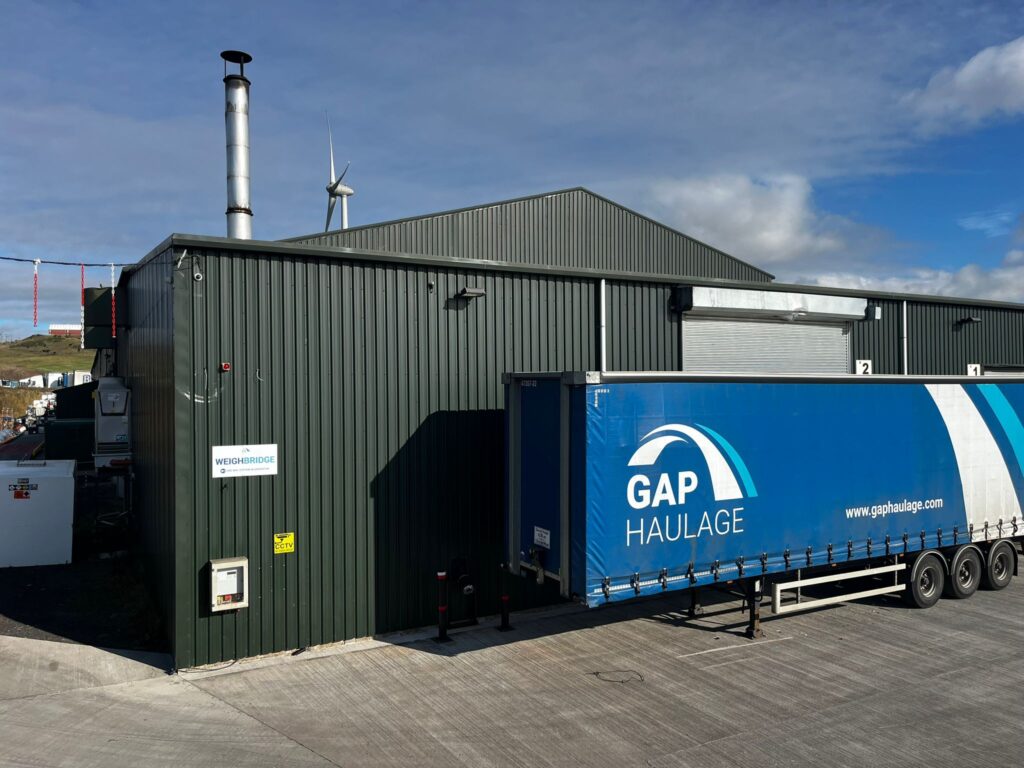The scheme, which enables retailers to cover their obligations by funding WEEE collection facilities at civic amenity sites/household waste recycling centres, needs a decision to be made on its future by a secretary of state for the environment.

Peter Andrews, head of sustainability at the British Retail Consortium (BRC), by whom the proposal was submitted in conjunction with Valpak, said: “A new DTS will further increase the UK’s WEEE collection point network, making it more convenient for more consumers, whilst raising greater public awareness of the importance of WEEE recycling and providing decision makers with key information.”
Under the WEEE regulations of 2013 retailers of electrical and electronic equipment (EEE) can either offer an instore take-back of waste electrical equipment on a one-for-one like-for-like basis or join the DTS.
Undetermined
Until a new ministerial team is in post, the future of the scheme remains undetermined, although there are expectations that the current system could be extended for a period of months. Alternatively, ministers might swiftly approve a new approach to the existing scheme which would see more retailers taking back used electrical items within stores.

Adrian Hawkes, policy director at Valpak, the environmental consultants who currently oversee the DTS on behalf of Defra, explained that a new proposal for the scheme had been submitted to the last government. He said: “We think it’s a positive proposal, otherwise we wouldn’t have put it forward.”
However, he admitted the election had led to uncertainty.
Instore
The current system has faced some criticism from within the WEEE sector with claims that it disadvantages those retailers who actually offer free instore collection as per their legal obligations.
There is also a view that some retailers who offer small WEEE collection services get access to WEEE and recycling evidence which could conflict with the current system.
If no decision on a way forward is made soon, under the current environmental protection regulations all distributors of EEE must offer an instore take-back on a one-for-one like-for-like basis from 1 January 2020.
Valpak
Valpak and BRC submitted the revised DTS proposal to Defra for an interim period of two-years to the end of 2021. This, they explain, would operate while the government undertakes a review of the whole UK WEEE system and its regulatory framework.
“This is very much intended to be an interim step between the current DTS and the outcome of the Defra review”
Mr Hawkes said: “This is very much intended to be an interim step between the current DTS and the outcome of the Defra review.”
In its proposal document, Valpak requested a grace period for all retailers until 31 March 2020 to re-register if the revised DTS is approved, or, if not, to implement take-back systems without any enforcement action being taken against retailers for non-compliance.
Mr Andrews said: “A new DTS is vital if the UK is to continue delivering one of the highest collection rates for WEEE in Europe. Retailers have provided over £13 million in funding to Local Authorities through the Scheme to increase the collection and recycling of WEEE.”
Proposal
Valpak suggests the DTS continues to provide funds for projects run by local authorities aiming to develop best practice to increase the rate of collection, reuse and recycling in the UK.

It suggests funding should continue for new WEEE areas at civic amenity sites which are publicly accessible and allow for the collection of all WEEE streams.
It also suggests providing financial encouragement to DTS members to expand the scope of their instore take-back facilities and to develop best practice collections, as well as increasing communication with the public about WEEE recycling.
This would incentivise retailers to trial their own take-back schemes instore, allowing them then to pay less into the scheme.
Larger retailers could trial their schemes in some stores, and if they proved successful could then roll them out across the country.
Reaction
Peter Hunt, managing director of recycling firm WasteCare, said the current system had a number of flaws, with one being that for “retailers who offer an instore take-back, rather than getting a revenue they are paying a premium. It doesn’t take the retailer anywhere.”

However, Mr Hunt also has concerns about the new DTS proposal and warned that infrastructure is losing out under the current and proposed system.
He said: “The proposal is more of the same. Some people are making very good money for doing nothing but moving a piece of paper. The infrastructure needed for WEEE is being ignored.”
In opting to pay to join the DTS, rather than offering free instore take-back, retailers can implement their own takeback scheme, but they are under no obligation to take back any WEEE, store it or dispose of it.
Mr Hunt said: “Retailers in the high street are faced with a difficult problem. Do they pay the tax or come up with a system of their own?”
Recolight
Nigel Harvey, chief executive of producer compliance scheme Recolight, said the idea of instore take-back and WEEE take-back when delivering new EEE should be implemented as a matter of priority.

“There may be merit in a new DTS that gives an opt out to retailer sites that only sell very low tonnages of EEE, and for online retailers and marketplaces.”
He also referred to the obligations of online suppliers of electrical goods. “Charges for online operators should be much higher than current rates, so as to be fully reflective of the avoided costs actually incurred by high street retailers.”
Targets
Data released last week on the collection of WEEE for the first three quarters of 2019 suggests recycling targets could be missed for a third consecutive year.
With the target set at 550,577 tonnes the UK has so far collected 376,417 tonnes; therefore, only the equivalent of 68 per cent of the target has been collected.
Figures from the fourth quarter are traditionally lower, and so it is likely that for some schemes a compliance fee will be needed to make up the shortfall.
Mr Harvey said: “With UK WEEE collection targets likely to be missed for the third year in succession, we undoubtedly need a new approach. The DTS opt out is no longer fit for purpose.”









Subscribe for free